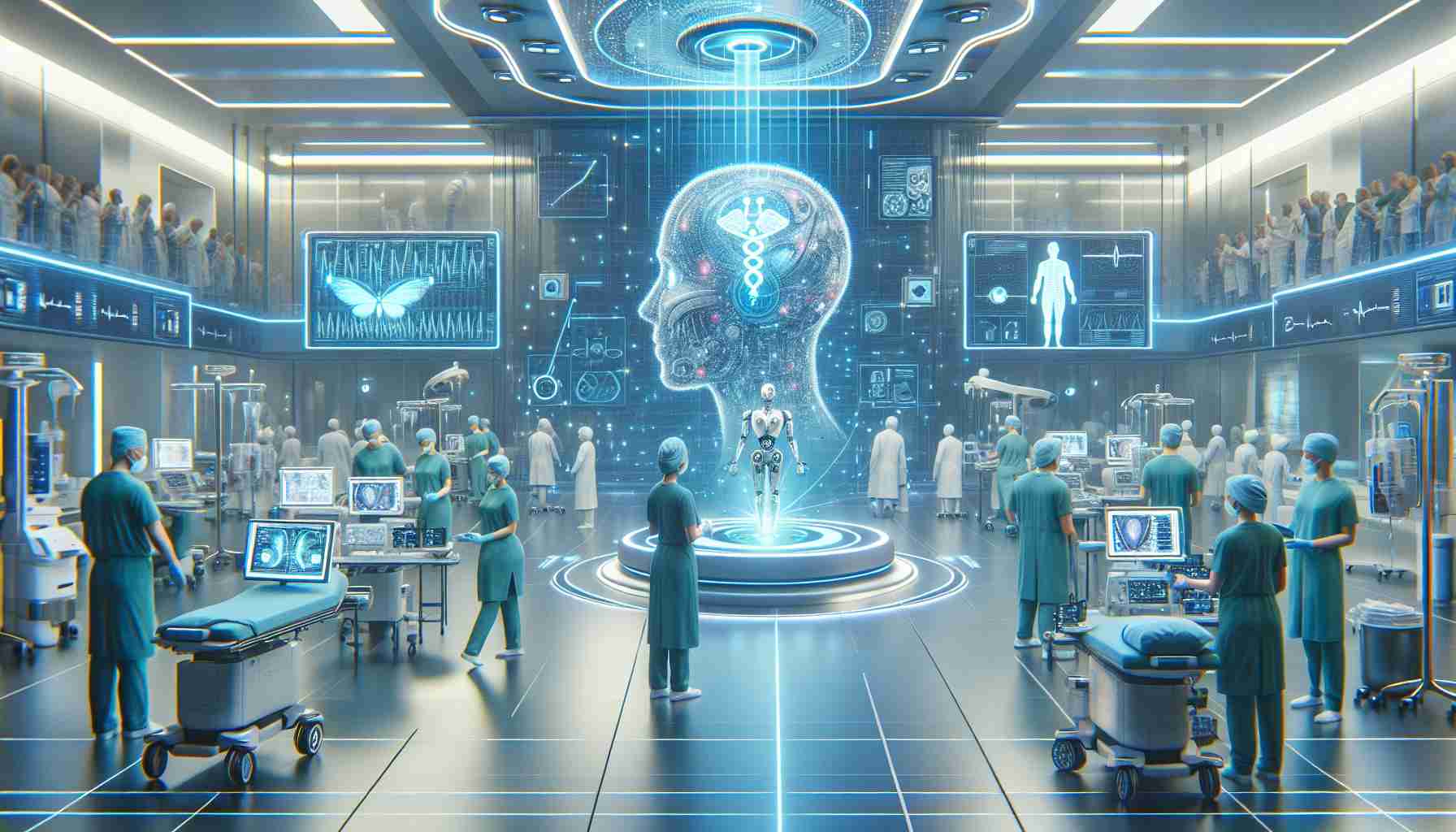As the healthcare industry embraces technology, AI is poised to lead a dramatic transformation by 2025. Executives in the sector are optimistic about the advancements AI could bring, particularly in the realms of diagnostics, efficiency, and improved patient care.
Industry leaders are anticipating significant developments, especially with multimodal AI. This advanced technology can process and analyze text, images, audio, and video, offering healthcare providers a more comprehensive toolset. Professionals like Dr. Michael Howell emphasize the importance of accumulating real-world evidence to refine AI’s integration in complex healthcare environments.
The impact of AI in diagnostic imaging is also highlighted, where innovations can enhance image clarity, allowing radiologists to detect issues that would be hard to notice otherwise. Roland Rott points out that AI’s ability to mitigate current imaging challenges will accelerate accurate diagnoses, leading to better treatment plans.
However, there are inherent challenges to overcome. Many leaders express concern about the slow integration of AI into clinical settings, often due to fears surrounding data security and regulatory hurdles. Lisa Suennen notes a hesitance in the administrative realm, emphasizing that the healthcare sector needs time to adapt to the evolving technology landscape.
Despite skepticism, 2025 could herald a shift where AI transcends experimental stages to offer measurable benefits, improving efficiency across healthcare systems. The coming years are bound to shape the future of patient care, prompting reflection on the synergy between human expertise and AI capabilities.
Revolutionizing Healthcare: How AI Will Transform Patient Care by 2025
The Future of AI in Healthcare
As the healthcare industry embraces technological advancements, the role of Artificial Intelligence (AI) is set to expand significantly by 2025. Executives and industry leaders are optimistic that AI will facilitate improvements in diagnostics, operational efficiency, and patient care, leading to a more effective healthcare system.
Key Innovations: Multimodal AI
One of the most exciting developments in AI is the rise of multimodal AI technologies. This innovative approach enables the integration of various data types, including text, images, audio, and video. By processing diverse sources of information, multimodal AI provides healthcare providers with a comprehensive toolset that enhances clinical decision-making.
Dr. Michael Howell emphasizes the necessity of collecting real-world evidence to optimize AI’s application in complex healthcare scenarios. This evidence is crucial for refining algorithms and ensuring that AI solutions are grounded in actual clinical experiences.
Enhancements in Diagnostic Imaging
AI is particularly transformative in the field of diagnostic imaging. With new algorithms designed to improve image clarity and detail, radiologists can identify abnormalities that might have previously gone unnoticed. According to Roland Rott, AI’s capabilities to tackle existing challenges in imaging will lead to more accurate diagnoses, which in turn, results in better-tailored treatment plans for patients.
Challenges to Overcome
Despite the excitement surrounding AI, the integration of these technologies into clinical practices faces several obstacles. Concerns regarding data security and regulatory compliance remain predominant. Lisa Suennen points out that there is a palpable hesitance among healthcare administrators, indicating a need for the sector to find its footing in an era of rapid technological change.
Measuring Impact: Pros and Cons
Pros:
– Enhanced diagnostic accuracy through improved imaging techniques.
– Greater operational efficiency reducing the burden on healthcare staff.
– Personalized patient care through data-driven insights.
Cons:
– Ongoing concerns about data privacy and security risks.
– Regulatory challenges that may slow down implementation.
– Potential resistance from healthcare professionals wary of change.
Future Predictions
As we look toward 2025, there is a strong possibility that AI will move beyond theoretical applications to showcase significant, measurable benefits in healthcare. This evolution offers potential improvements in patient outcomes and operational efficiency. The coming years will likely highlight a harmonious partnership between human expertise and AI capabilities, ushering in a new era of healthcare innovation.
Use Cases for AI in Healthcare
1. Predictive Analytics: Leveraging patient data to anticipate disease outbreaks or individual health risks.
2. Telemedicine: Enhancing remote patient monitoring systems for timely interventions based on AI analysis.
3. Robotic Surgery: Integrating AI with robotic systems to improve precision in surgical procedures.
Conclusion
The integration of AI into healthcare is set to reshape the industry, providing better tools for diagnostics and patient management. However, balancing the potential benefits with security and regulatory concerns will be critical to ensuring a smooth transition. The next few years will determine how healthcare adapts to these advancements, ultimately aiming for an efficient and patient-centered approach.
For more insights on the future of healthcare and the role of technology, visit healthcare.gov.
